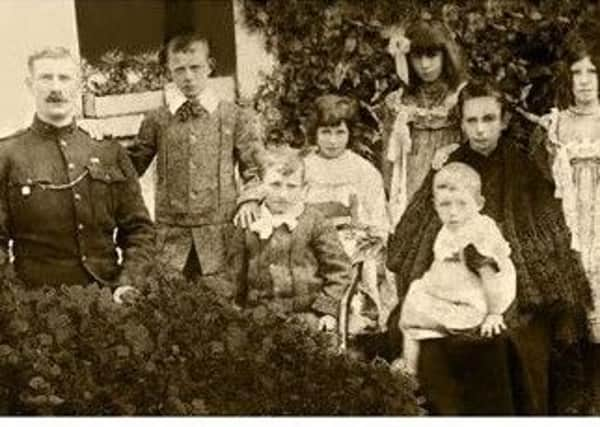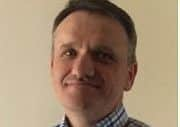RIC men who were first casualties of independence war remembered amid Dail events


One of the key organisers of a programme of events marking the fatal ambush, which happened on the same day that the Dail convened in Dublin, said they have gone out of their way to avoid looking at it from “a narrow republican view” – drawing some criticism as a result.
Tim Hanly, from the Solohead area in Co Tipperary, south-west Ireland, near where the killings took place, also said there is “a bit of disappointment” that president Michael D Higgins himself will not attend the event, which aims to keep the “personal stories” of all those involved are not forgotten.
Advertisement
Hide AdAdvertisement
Hide AdOn January 21, 191, rebels ambushed a pair of RIC men as they escorted a 160-pound consignment of quarry explosives at a place called Soloheadbeg, killing them.


It is widely seen as the start of Ireland’s War of Independence, which lasted two-and-a-half years and eventually transformed into a far bloodier civil war.
It is widely thought the rebels had acted on their own local initiative, and the fact that the Dail convened on the same day has been reported (by outlets ranging from RTE to An Phoblacht) as being a “coincidence”.
On Monday in Dublin, in recognition of the first Dail, there will be an address from President Higgins, musical performances, and a special sitting of parliament including the signing of a ‘Centenary Declaration’ – plus other commemorative events through the year.
Advertisement
Hide AdAdvertisement
Hide AdMr Hanly’s Solohead remembrance events take place the day before on Sunday; there will be some Irish government involvement, with the Irish army and a government minister attending.
It will involve an 11.30am mass in Solohead attended by the families of the dead policemen, James McDonnell and Patrick O’Connell, and families of the rebels too.
There will then be a 12.30pm gathering in the village, where wreaths will be laid and “the Irish army will raise the flag, play the Last Post and the national anthem”.
Thousands of people are expected to attend.
Mr Hanly, aged 52, said: “We’re very mindful of the sacrifices and the losses. We don’t come from a narrow republican perspective on this. We wanted to be inclusive... It’s not selective for one side.
Advertisement
Hide AdAdvertisement
Hide Ad“We want to remember what happened. I hope the personal stories will not be lost.”
He went on to add: “We totally respect the office of the president. He’s the first citizen. And we respect his decision not to come.
“But I can also express a bit of disappointment, that we’d like the first citizen to be here because he can represent everybody.”
It would have been especially good since “we had gone to such lengths to have this as an inclusive event – not easy because we took a bit of criticism from certain quarters”.
Advertisement
Hide AdAdvertisement
Hide AdIn addition, the Irish President in 1950 had himself been present at the unveiling of a memorial to the ambush (accompanied by what the Irish Independent at the time described as rebel “survivors of the engagement” – though it is thought the policemen did not fire a single shot at them).
The office of the president told the News Letter: “It isn’t the president’s intention to comment on the many invitation his office receives, but he will do his best to attend as many events as possible.”
The Department of Culture, Heritage and the Gaeltacht – whose minister Josepha Madigan is to give an address in Solohead – helped fund the event, saying it is “appropriate for local authorities and local community organisations to be encouraged to lead the commemorative process”. It said the event is to be “inclusive”, remembering “all of the lives lost”.
Sinn Fein has been invited, along with the other parties, to Sunday’s Solohead commemorations. It is not known who or how many may turn up.
Advertisement
Hide AdAdvertisement
Hide AdBut the party is holding its own commemoration today, with Mary Lou McDonald expected to be in attendance.
BACKGROUND TO THE AMBUSH:
Given its significance in what became the War of Independence, there has been much historic discussion about the ambush at Soloheadbeg.
It is thought that one of the rebel’s brothers had worked in the quarry, and tipped them off that a consignment of explosives was on its way.
Tim Hanly, organiser of the commemorations this weekend, said they are believed to have lain in wait for the consignment in a hut close to the ambush site – which is now just a cattle field – for up to two weeks.
Advertisement
Hide AdAdvertisement
Hide AdHe said it is possible the explosives which were stolen were later used in an attack on an RIC barracks the following year.
The two dead men were constables James McDonnell and Patrick O’Connell.
Both Catholics, constable McDonnell was a widower with eight children, in his 50s, and native to Mayo. He was believed to have passed up promotion to stay in Tipperary.
The other police officer was “probably late 20s or 30s”, unmarried, and originally from Co Cork.
Advertisement
Hide AdAdvertisement
Hide AdMr Hanly said two council workers had also been helping to transport the explosives, and one was left “traumatised” by the killings, which were condemned by the Catholic church.
But the authorities’ reaction however was seen as harsh, he said, and people’s sympathies for the officers ebbed away.
Explaining the rationale behind the attack, Dan Breen – one of the participants, who later went on to become a Fianna Fail politician – said, in a passage quoted by writers including Ruth Dudley Edwards: “(Seán Treacy) had stated to me that the only way of starting a war was to kill someone, and we wanted to start a war, so we intended to kill some of the police whom we looked upon as the foremost and most important branch of the enemy forces...
“The only regret that we had following the ambush was that there were only two policemen in it, instead of the six we had expected.”